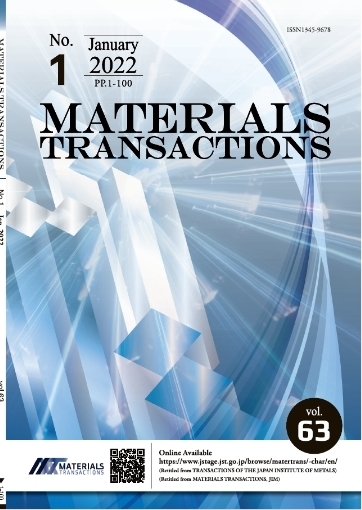Thermodynamic Calculation of Phase Equilibria in the Nb-Ni-Ti-Zr Quaternary System
Tatsuya Tokunaga, Satoshi Matsumoto, Hiroshi Ohtani, Mitsuhiro Hasebe
pp. 89-96
Abstract
The phase equilibria in the Nb-Ni-Ti-Zr quaternary system have been studied using the CALPHAD method. Among the four ternary systems present in the quaternary phase diagram, the Nb-Ti-Zr ternary system was described using a simple ternary extrapolation of the constituent binary systems with no additional ternary parameters. The thermodynamic parameters of the Ni-Ti-Zr ternary system were evaluated using data from first-principles calculations on the ternary NiTi, NiZr, and NiTiZr compound phases as well as available experimental data on the phase boundaries. The calculated isothermal and vertical section diagrams of both the Nb-Ti-Zr and Ni-Ti-Zr ternary systems reproduced the experimental results satisfactorily. The thermodynamic parameters of the Nb-Ni-Ti and Nb-Ni-Zr ternary systems were adopted from previous studies. The liquidus surface in the Nb-Ni-Ti-Zr quaternary system was calculated based on the thermodynamic description of the ternary systems. According to the calculated liquidus surface of Nb40−x−yNi60TixZry alloys, in which a metallic glass was formed over a wide composition range, the liquidus temperature decreased with increasing Zr content up to 20 mol%Zr.










